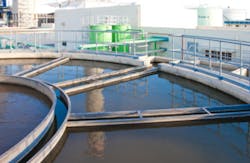Mexico’s Industrial Water & Wastewater Treatment Chemical Market Sustained by Water Treatment Regulations
The escalating use of water for industrial processes has spurred the need for water and wastewater treatment, boosting the demand for water and wastewater treatment chemicals in Mexico, according to a new study from Frost & Sullivan. Growing awareness on water legislations will continue to drive the market in Mexico, although major improvements in infrastructure are still required.
The Mexican Industrial Water and Wastewater Treatment Chemical Market report finds that the market earned revenues of more than $342.9 million in 2012 and estimates this to reach $473.1 million in 2017. Fast-growing industries and rising water prices have compelled several plants in Mexico to install their own water treatment facilities, sustaining investments in the country's treatment chemical market.
"Water regulations at the federal, state and municipal levels in Mexico allow water usage only through authorization, subject to terms and conditions," Frost & Sullivan Chemicals, Materials and Food Research Analyst Florencia Benitez Boiardi said in a prepared statement. "This legal frame accelerates the adoption of chemicals for industrial water and wastewater treatment."
However, the irregular water availability in Mexico makes sustainability difficult. Water treatment stations are located only near the biggest cities, and the lack of basic infrastructure in peripheral cities and rural areas curb the market's overall scope.
Environmental organizations' opposition to the use of chemicals and the discharge of toxic chemicals directly into sewers further hampers the uptake of treatment chemicals. The trend of substituting conventional treatments for other technologies such as membranes, ultrafiltration and ultraviolet rays will also affect chemical suppliers' revenues.
Nevertheless, the high costs of these non-chemical industrial water and wastewater treatment processes will ensure that chemical treatment remains the process of choice, Frost & Sullivan says.
"Focusing on technological developments that will enable the re-use of highly polluted wastewater will add to the popularity of chemical treatment methods," Boiardi said. "Vendors must also develop strong relationships with manufacturers to optimize the supply chain and guarantee market sustenance."
For more information on The Mexican Industrial Water and Wastewater Treatment Chemical Market report, click here.
